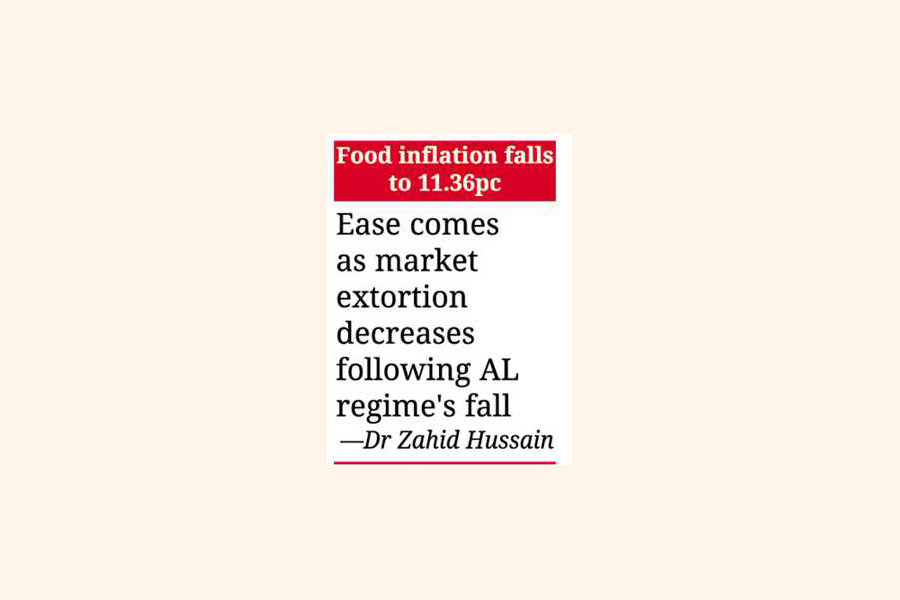
Published :
Updated :

An inexorable inflation has long tormented low-income segment of people but it began easing following the crucial August changes with the rate decreasing over 1.0 percentage point to 10.49 per cent in the month.
The little cooling of inflation in August is shown in the monthly updating data released Sunday by Bangladesh Bureau of Statistics (BBS).
In the inflation arithmetic, food inflation fell to 11.36 per cent in August -- a significant drop of 2.74 percentage points from the previous month.
However, non-food inflation edged up marginally to 9.74 per cent from 9.68 per cent in July.
The 12-month moving average inflation remained at 9.95 per cent in August, compared to 9.24 per cent during the same period last year.
Urban areas witnessed the steepest decline in inflation, with the rate having fallen by 1.26 percentage points to 10.01 per cent in August. Rural count also dropped, albeit more modestly, by 0.95 percentage points to 10.95 per cent.
The BBS data show the overall decline in inflation was mainly due to the fall in food prices.
Dr Zahid Hussain, an independent economist, says the reduction in overall inflation is largely driven by the easing of food inflation in a changed situation.
As for the fall in food inflation in both urban and rural areas in August, he notes that "extortion decreased following the fall of the Awami League regime on August 5" that brought a nonpolitical interim regime in the seat of power.
The interim government, which assumed office on August 8, has made curbing inflation a top priority as prices rises have left people in woes for pretty long.
Economists and analysts have attributed the inexorable inflation largely to market syndication and inflated pricing of numerous necessaries in control of oligopolies, and extortion, apart from other economic factors.
On September 1, the Ministry of Commerce under the interim government requested the National Board of Revenue to withdraw import duties on onions, potatoes, and eggs in an effort to stabilize their prices.
Meanwhile, Bangladesh Bank, continuing its contractionary monetary policy, raised its policy rate by 50 basis points to 9.0 per cent to tighten money supply to contain inflationary pressures.
Statistical bureau BBS measures inflation by using Consumer Price Index (CPI), which tracks the average change over time in the prices of a specified set of goods and services representing a market basket for a given group of consumers.
Both rural and urban CPI baskets cover 383 items with 749 varieties of food and non-food goods and services.
Former finance minister Abul Hassan Mahmood Ali set an inflation target of 6.5 per cent for fiscal year 2024-25 while unveiling the annual budget of the now-deposed government.
This inflationary episode was initially driven by high inflation expectations, a significant depreciation of the Bangladeshi taka (BDT) against the US dollar, and disruptions to domestic supply chains due to non-economic factors, according to monetary policy statement.
In monetary policy statement for the current July-December period, Bangladesh Bank has acknowledged that reaching the target of a pared-down rate of inflation at 6.5 per cent by the end of FY25 remains challenging.
jasimharoon@yahoo.com


 For all latest news, follow The Financial Express Google News channel.
For all latest news, follow The Financial Express Google News channel.